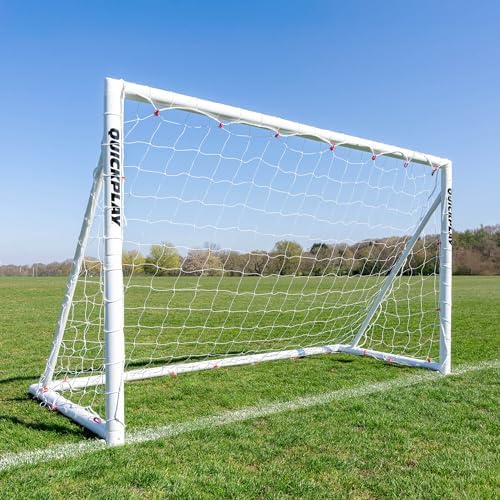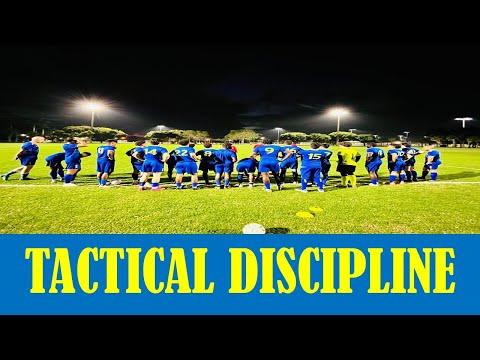In the high-stakes arena of tournament football, where every match coudl determine a team’s fate, the significance of tactical discipline cannot be overstated. As teams from around the globe converge to compete for glory, the ability to execute a well-defined strategy with precision often distinguishes the champions from the also-rans.Tactical discipline, encompassing strategic positioning, cohesive teamwork, and the meticulous execution of game plans, serves as the cornerstone of success on the pitch. This article explores how an unwavering commitment to tactical principles not only shapes individual player performance but also enhances overall team synergy, ultimately influencing outcomes in the most prestigious football competitions. Thru expert insights and analysis, we will delve into the pivotal role that tactical discipline plays in shaping the course of tournaments and explore the key attributes that define disciplined teams at the highest level of the sport.
Table of Contents
- The Foundations of Tactical Discipline in Competitive Soccer
- Key Strategies for Enhancing Team Coordination and Communication
- Adapting Tactical Approaches to Match Situations
- Measuring Success: Evaluating Tactical Discipline in Performance Analysis
- In Summary
The Foundations of Tactical Discipline in Competitive Soccer
Tactical discipline is the backbone of any successful soccer team competing at the highest levels. It goes beyond individual skills, laying the groundwork for cohesive teamwork and effective strategy implementation. This discipline manifests as players adhere to their positions, understand their roles within the broader tactical formation, and execute game plans with precision. Key components of tactical discipline include:
- Player Positioning: Players must maintain their designated positions to create a balanced formation, ensuring proper coverage of the field.
- Communication: Constant dialog among teammates helps to promote awareness of the game state and tactical adjustments.
- Commitment to Team Strategy: Every player needs to fully embrace the coach’s game plan, executing individual responsibilities to contribute to the team’s overall strategy.
Moreover, tactical discipline enhances a team’s adaptability during fast-paced tournament scenarios. Teams that exhibit strong tactical discipline can adjust their strategies under pressure, weather transitioning from offensive to defensive play or responding to the opponent’s movements. This adaptability is critical in tournaments where every match can hinge on minute decisions. Consider these benefits:
| Benefit | Description |
|---|---|
| improved Cohesion | Players work seamlessly, reducing errors in positioning and movement. |
| Enhanced Game Understanding | Players gain a clearer sense of when to be offensive or defensive. |
| Increased Confidence | Well-disciplined teams display stronger performance under pressure. |
Key Strategies for Enhancing team Coordination and Communication
In the high-stakes habitat of tournament football, synchronizing efforts across the team is paramount. Clear communication serves as the foundation for establishing a cohesive unit capable of executing complex strategies under pressure. Enhancing verbal cues during gameplay, such as calling for the ball or signaling positional changes, fosters an atmosphere of trust and responsiveness among players. Additionally, implementing regular debriefings post-match allows for shared experiences and lessons to refine future tactics, keeping everyone aligned with the team’s objectives. This collective mindset cultivates a sense of belonging and heightens motivation, ultimately translating into improved on-field performance.
Furthermore, employing modern technology to facilitate communication has proven invaluable.Utilizing team management apps helps streamline coordination by providing a platform for real-time updates on schedules, training sessions, and tactical analyses. Such tools not only enhance transparency but also ensure that all members—coaches and players alike—can access vital information swiftly. Regularly scheduled practice sessions that focus on specific tactics and encourage open dialogue empower players to express concerns or suggestions, nurturing a culture of collaboration. By embedding these strategic practices into the fabric of the team, organizations can elevate their operational efficiency and readiness for the challenges of tournament football.
Adapting tactical Approaches to Match Situations
In the dynamic environment of tournament football, teams must exhibit a fluidity in their tactical approaches to effectively respond to various match situations. The ability to pivot from a defensive stance to an aggressive offensive strategy can often influence the outcome of the game. coaches harness the strengths of their players to craft customized strategies,ensuring readiness for any scenario. By analyzing an opponent’s weaknesses, teams can dictate the game’s pace and style, allowing them to seize control when the moment is right.
Moreover, successful teams must also instill a mentality of adaptability among their players. This involves regular training sessions that simulate high-pressure conditions, where players can practice transitioning between tactics seamlessly. Essential components include:
- Versatility in formations – Adjusting formations can provide numerical advantages in critical areas of the pitch.
- Player versatility – Encouraging players to develop multiple roles increases the squad’s tactical options.
- In-game communication – Fostering a culture of constant dialogue among players helps to swiftly implement tactical changes.
To illustrate how tactical discipline can evolve through match situations, consider the following table representing potential adjustments during a hypothetical match:
| Match Scenario | Tactical adjustment |
|---|---|
| Trailing at Half-Time | Shift to an attacking formation (e.g.,3-4-3) |
| Leading by One Goal | Transition to a more defensive setup (e.g., 5-4-1) |
| Opponent Red Card | Increase possession and control the tempo (e.g., 4-3-3) |
Measuring Success: Evaluating Tactical discipline in Performance Analysis
evaluating the effectiveness of tactical discipline in tournament football involves a multi-faceted approach to performance analysis. Coaches and analysts need to consider various metrics that directly relate to the team’s adherence to the tactical plan. Key indicators of tactical discipline include:
- Formation adherence: How well players stick to their assigned roles and positions throughout the match.
- Player movement: The effectiveness of communication and synchronization among teammates during offensive and defensive transitions.
- Decision-making: The quality of choices made under pressure, such as when to press an opponent or hold position.
- Execution of set pieces: The success rate of planned strategies during corner kicks,free kicks,and throw-ins.
To gain deeper insights into tactical discipline, performance analysts often utilize visual tools and statistical data. By breaking down match footage and player heat maps, they can assess how well a team implements its strategy. The following table summarizes some relevant performance metrics commonly analyzed:
| Metric | Importance | Goal |
|---|---|---|
| Possession percentage | Indicates control over the game | Maintain above 55% |
| Pass Accuracy | Reflects execution of tactical plans | Achieve at least 80% |
| Defensive Duels Won | Measures effectiveness in breaking opposition plays | strive for over 60% |
in Summary
the essential role of tactical discipline in tournament football cannot be overstated. as teams compete at the highest levels, the ability to execute a well-defined strategic plan while maintaining composure under pressure frequently enough distinguishes the victors from the vanquished. Coaches and players who prioritize tactical discipline create cohesive units capable of adapting to the ever-changing dynamics of the game. As we look forward to future tournaments,it is indeed clear that those who master this fundamental aspect will undoubtedly enhance their chances of success.As the beautiful game continues to evolve, the commitment to tactical discipline will remain a cornerstone for teams aspiring to achieve greatness on the world stage.





